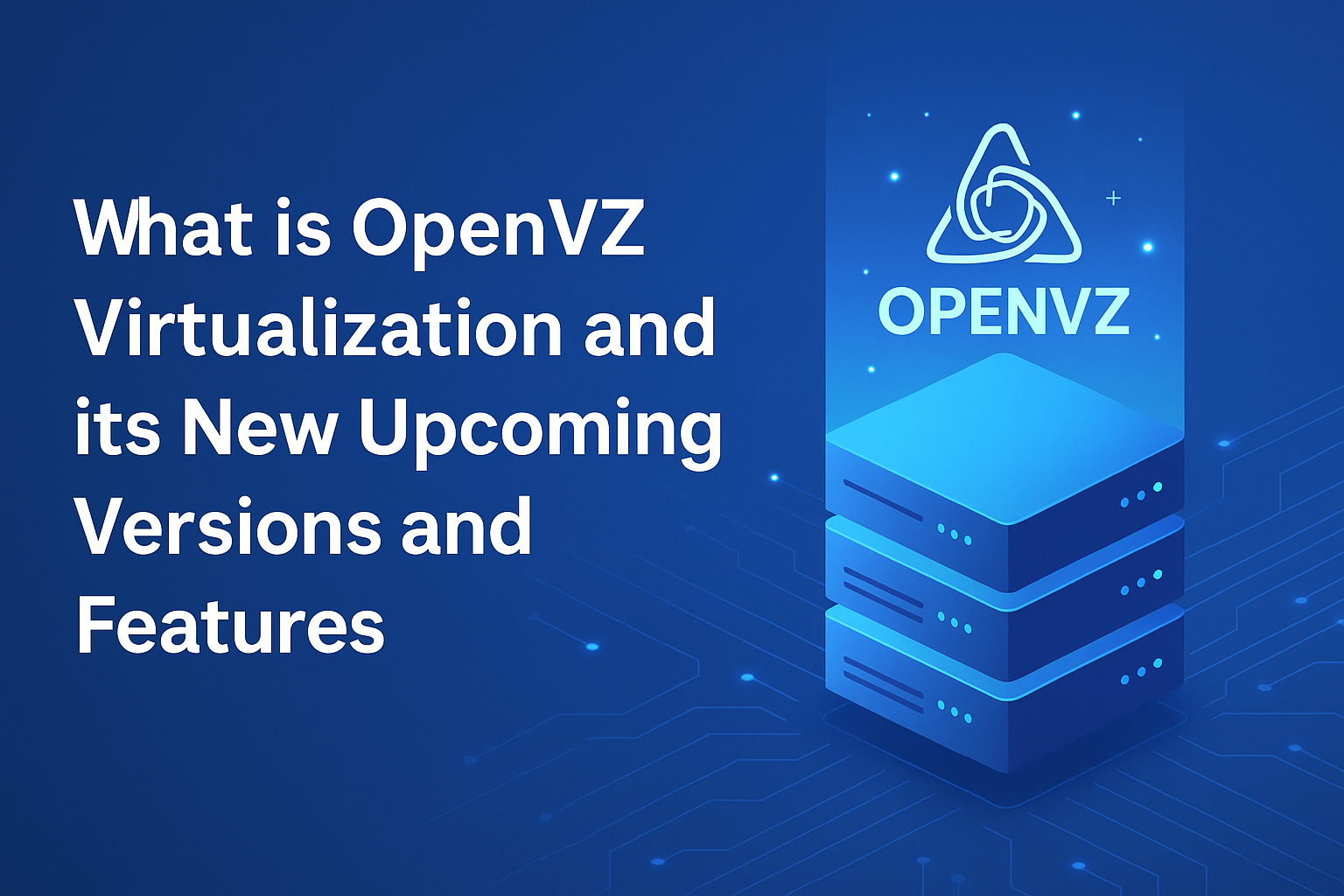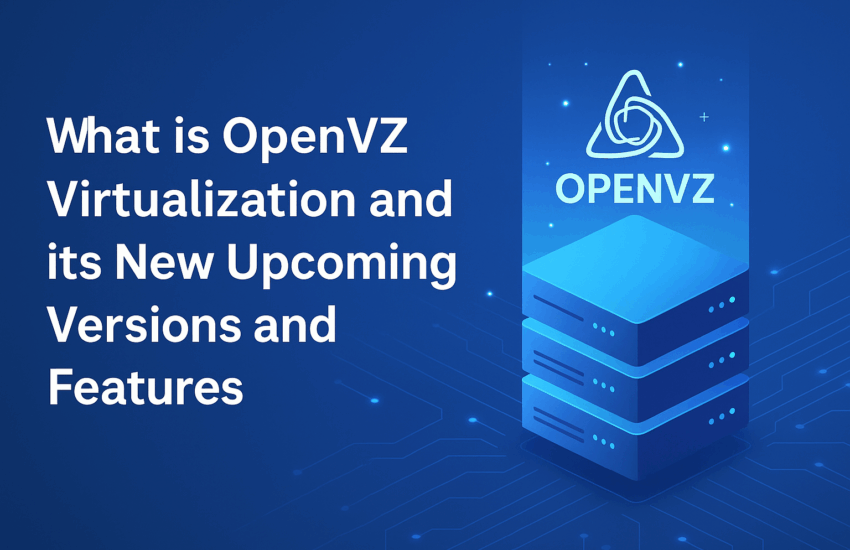
What is OpenVZ Virtualization? Versions & Features Explained – LowEndReview.com
Introduction: Understanding OpenVZ Virtualization
In the world of VPS hosting, OpenVZ stands out as one of the most efficient and lightweight container-based virtualization technologies. It allows multiple isolated Linux containers (or “VEs” – Virtual Environments) to run on a single physical server, sharing the same kernel. Designed for high performance and low overhead, OpenVZ is ideal for hosting providers looking to maximize resource utilization while offering reliable and scalable virtual servers.
✅ What is OpenVZ Virtualization?
OpenVZ is an open-source container-based virtualization solution for Linux. Unlike full virtualization (like KVM or VMware), OpenVZ Virtualization uses a shared kernel model, meaning all virtual servers run the same Linux kernel as the host.
🔍 Key Characteristics:
-
Container-based: Lightweight, efficient, and fast.
-
Shared Kernel: All containers use the same Linux kernel.
-
Resource Isolation: Each container gets its own files, users, processes, memory, and IPs.
-
High Density: Excellent for overselling or maximizing server use.
-
Low Overhead: Minimal CPU and RAM usage compared to other virtualization types.
⚙️ How Does OpenVZ Work?
OpenVZ creates multiple secure, isolated Linux containers on a single physical server. Each container performs like a standalone server from a user perspective.
It provides:
-
Private process trees (like separate
init,cron, etc.) -
Isolated networking (dedicated IPs)
-
Separate disk quotas
-
Individual user spaces and system libraries
-
Secure file systems and network access
🧰 OpenVZ vs Other Virtualization Types
| Feature | OpenVZ | KVM | VMware ESXi |
|---|---|---|---|
| Virtualization Type | Container (OS-level) | Full Virtualization | Full Virtualization |
| Kernel Type | Shared Host Kernel | Separate Kernel | Separate Kernel |
| Overhead | Low | Medium | High |
| Performance | High | Medium-High | Medium |
| OS Support | Linux only | Linux, Windows, etc. | Linux, Windows, etc. |
| Density | High | Medium | Low-Medium |
| Use Case | Web Hosting, Lightweight VPS | General Purpose VPS | Enterprise Virtualization |
🚀 New & Upcoming Features in OpenVZ 7 and Beyond
OpenVZ 7 is the latest major evolution of the platform and merges OpenVZ with Virtuozzo, bringing massive upgrades in functionality and flexibility.
✨ Notable Features in OpenVZ 7+:
-
KVM Integration:
-
OpenVZ 7 supports both container and full KVM-based virtualization on a single node.
-
Enables mixed workloads (Linux containers + Windows/KVM VMs).
-
-
New Management Tools (prlctl, prlsrvctl):
-
Replacing old
vzctltools with powerfulprlctlCLI. -
Improved container lifecycle management.
-
-
Systemd and Modern Kernel Support:
-
OpenVZ 7 uses a modern RHEL-based kernel (3.10+ or later).
-
Full support for
systemdin containers. -
Better compatibility with newer Linux distributions.
-
-
Live Migration:
-
Seamless live migration of containers and VMs without downtime.
-
-
Improved Security:
-
Enhanced container isolation.
-
AppArmor, SELinux, and cgroups v2 support.
-
-
Custom Resource Scheduling:
-
Fine-tuned control over CPU, RAM, I/O, and network limits using updated schedulers.
-
-
Cloud-Ready Architecture:
-
Native support for integration with cloud platforms and APIs.
-
Ideal for scalable, automated hosting platforms.
-
🧪 OpenVZ 8: What’s on the Horizon?
While OpenVZ 7 is the current mainstream release, OpenVZ 8 is under consideration within Virtuozzo’s roadmap.
Expected or Rumored Features:
-
Updated Kernel (5.x or newer) for better driver/hardware compatibility
-
Better support for container orchestration tools like Docker and Kubernetes (hybrid workloads)
-
Advanced storage plugins (ZFS, Ceph, etc.)
-
Cloud-native management dashboards
-
AI-assisted workload optimization tools
📝 Note: Some of these features are already in Virtuozzo Hybrid Server—OpenVZ’s commercial sibling. Open-source adoption is expected gradually.
🏁 Use Cases of OpenVZ VPS Hosting
-
Shared hosting resellers
-
Budget VPS providers like VirtualizorVPS
-
Developer staging environments
-
Container clusters and isolated apps
-
Control panels like Virtualizor, SolusVM, Proxmox, etc.
💡 Why Choose OpenVZ Hosting?
-
🧩 Resource Efficiency: More containers per physical server.
-
🚀 High Performance: Low latency, fast I/O.
-
🛡️ Secure & Isolated: Process, file system, and network isolation.
-
🔁 Easy Backup & Cloning: Instant container creation and snapshots.
-
🧩 Easy OS Templates: Deploy from lightweight Linux templates in seconds.
📌 Final Thoughts
OpenVZ continues to be a powerful and relevant choice for virtualization, especially for providers prioritizing efficiency, scalability, and low overhead. With the upgrades in OpenVZ 7 and the promising future ahead in OpenVZ 8 and beyond, it’s evolving into a hybrid powerhouse combining the best of container and full virtualization worlds.
If you’re looking to host containers or lightweight Linux servers efficiently, OpenVZ remains a rock-solid option in 2025 and beyond. Check out our detailed review of HostNamaste, they are offering the OpenVZ VPS in multiple locations.
